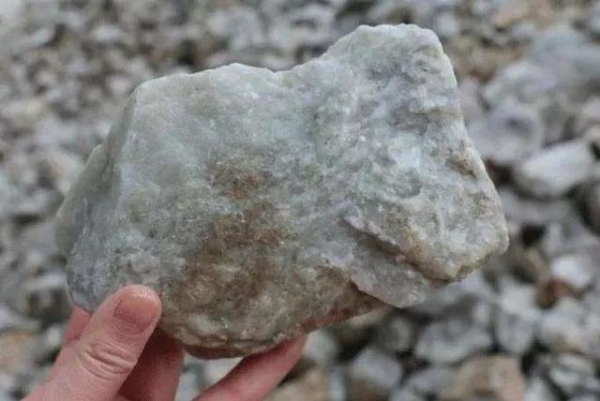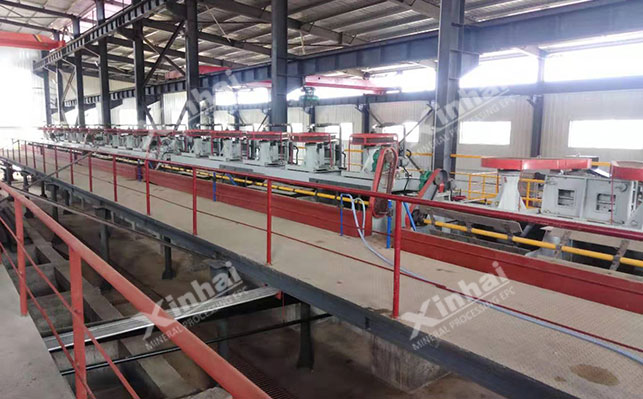Flotation method is commonly used in the beneficiation and purification of spodumene. This is because spodumene often coexists with lepidolite, beryl, columbite tantalite, tourmaline, muscovite, etc., which is difficult to separate. The flotation method has a wide range of applications and can well separate spodumene from other gangue minerals. What are the characteristics of spodumene flotation? What are the common flotation methods?

Generally, spodumene with industrial value can be separated by flotation, especially in the form of fine disseminated spodumene. When spodumene is floated, it is usually possible to complete the separation of target minerals by adding "three alkalis and two soaps".
Tri alkali: refers to sodium hydroxide (NaOH), sodium carbonate (Na2CO3) and sodium sulfide (Na2S), which are used as adjusting agents for spodumene flotation, among which Na2CO3 and Na2S are used to eliminate the influence of molten salt ions in the pulp; The highly alkaline medium formed by NaOH can scrub the surface of spodumene ore. Its dosage, adding position and concentration of Ca2+in the water used in the separation process will affect the spodumene flotation.
Two soaps: refers to oxidized paraffin soap and naphthenic acid soap, which are used as the collector of spodumene and have foaming property. However, its dosage will change with the hardness of water. When the water quality is soft, naphthenic acid soap is not conducive to flotation, otherwise, the flotation effect will increase significantly.

The positive flotation of spodumene is completed in alkaline medium. Anionic collectors are often used. The finely ground minerals are added to the strong alkaline medium for high concentration and strong stirring. The pulp with high concentration is treated with sodium hydroxide to remove the pulp under alkaline action. After multiple scrubbing and desliming, the spodumene is directly floated by adding fatty acid or soap collectors.
As the added sodium hydroxide reacts with silicate gangue minerals in the pulp and generates sodium silicate (water glass) inhibitors, the sulfur dioxide (SiO2) leached from the spodumene surface is activated, while the gangue minerals generate insoluble compounds due to the activated cations (iron, calcium, copper, etc.) on their surface, which are then inhibited to achieve spodumene flotation.
The spodumene reverse flotation process is also completed in alkaline medium. Lime, starch and dextrin are mainly used as inhibitors, and oil is sent as foaming agent. Under the condition of alkaline medium (pH 10.5~11.0), the dextrin regulator can effectively inhibit spodumene, and then amine cation collectors are used to collect silicate gangue minerals such as quartz, feldspar and mica to achieve reverse flotation.
Sometimes, in order to obtain qualified spodumene concentrate, products containing some iron substances will be concentrated before flotation, and then hydrofluoric acid and fatty acid collectors (resin acid soap) will be added to flotation spodumene concentrate.
If it is difficult to obtain qualified spodumene concentrate from poor, fine and miscellaneous spodumene by a single flotation method, a combined flotation method is required. At present, flotation magnetic separation method and flotation magnetic separation gravity separation method are commonly used.
Flotation magnetic separation method: firstly, oxidized paraffin soap and naphthenic acid soap are used as the combined collector, and NaOH is used as the pH regulator to obtain spodumene in alkaline pulp by adopting a coarse and fine flotation process, and then iron is removed by strong magnetic separation to obtain spodumene concentrate with low iron content.
Flotation magnetic separation gravity separation method: after slurry preparation, the ground materials enter the gravity separation stage (removing tantalum, niobium and other products). After the gravity separation tailings are thickened and deslimed by the thickener, the slurry is prepared by adding oleic acid and oxidized stone wax. Spodumene concentrate is floated out under high alkalinity conditions, and then iron impurities are further removed by strong magnetic separation for purification.
In addition to flotation, there are many other beneficiation methods for spodumene, but flotation is still a commonly used and effective method to extract lithium.